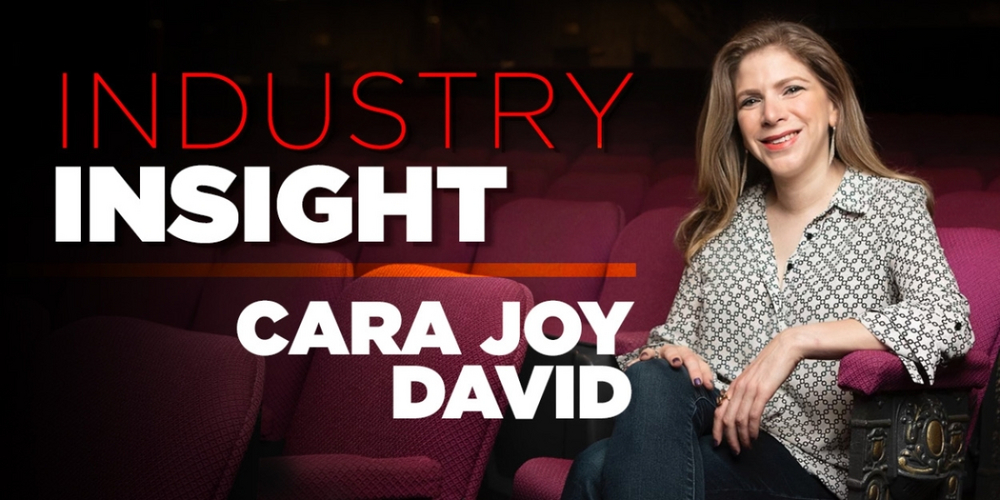Industry Editor Exclusive: Many Broadway Actors Face a New Loss... Health Insurance
One thing you want in the middle of the COVID-19 pandemic is health insurance. But many theater actors are in danger of losing theirs because of the theater shut down.
Actors' Equity members receive Cigna health benefits from the Equity-League Benefit Funds. But, in order to qualify, you need to work at least 11 weeks in a 12 month period for 6 months of coverage or 19 weeks in that period for a year of coverage. Some actors were due to fulfill those weeks in spring productions, which were shuttered. Surely, one would think some concession could be made. So far, none have been forthcoming.

"We are in a global health crisis and it should be priority for the Fund to make sure as many people as possible can be insured," said actor Adam Chanler-Berat in a recent interview. "It is unfathomable to me that there would be no concessions made at this time."
Chanler-Berat was one week short of his required weeks when the Classic State Company revival ASSASSINS, in which he was to play John Hinckley Jr., shuttered due to the coronavirus crisis. If he didn't obtain that week in April, he would lose his current insurance on July 1. Early on, even before the shutdown, he saw the writing on the wall and began reaching out to Equity and the Fund. Responses were few.
"It made me irate," he said. "I was sending so many emails, making so many calls."
Chanler-Berat is not alone in his frustration. For those Equity members in Broadway shows, the agreement with the Broadway League ensured health insurance payments through April 12. If you were going to hit your weeks after that, you are out of luck. Even the richest producers are unlikely to help you out. And union members in non-Broadway productions faced ad hoc strategies determined by each producer individually.
The Public Theater, with its large endowment cushion, was one of the theaters that nicely paid all of the artists in its four spring productions through the planned end dates of the productions they were to be in or through the end of April, whichever came first. This included health contributions. Most other companies claimed (likely accurately) they could not afford to be that generous. Some paid a couple of additional weeks, some more, some cut actors off immediately. This left Chanler-Berat--and many others--without a way to make up the week(s) so desperately needed.
There have been many discussions on this topic. Equity told its members that it had requested Congress consider a 100 percent COBRA subsidy--and requested a petition be signed to encourage Congress to adopt that recommendation--but it could not control the Health Fund. Congress has thus far not granted Equity's request. Equity also promoted to its members a 50% subsidy offered through New York State, but if you are on unemployment insurance you currently make too much money to qualify for that subsidy.
The Fund enacted some new policies to help people who had qualified for insurance. They (1) removed copays on COVID-19 testing and treatments; (2) enabled participants to obtain additional quantities of medications to protect them from possible shortages; (3) relaxed a number of utilization management programs to both make it easier for participants to have their medical treatments approved expeditiously; (4) waived three month's worth of contributions participants normally have to make to enact/maintain their coverage; and (5) provided information on resources our participants can use in connection with this crisis. But for those that required continued employment to receive continued benefits? They are so far out of luck.
"As a Multiemployer Trust fund, we are funded by contributions we receive from employers and plan participants," Equity-League Fund Executive Director Arthur Drechsler explained in an email to me. "We are a not for profit organization and are self-insured, so our current goal is to provide as much coverage, to the greatest number of people, for the longest possible time. . . Because our ability to carry out our mission is driven by the contributions we receive, and since employer contributions have plummeted as a result of theater closings, along with the incomes of our plan participants, our income has severely and precipitously dropped."
In other words, the Equity-League Fund is claiming they do not have the funds to grant exceptions now. Chanler-Berat's ASSASSINS' costar Steven Pasquale tweeted questioning whether he could donate his weeks to other actors, as he does not need Fund insurance. That idea was batted down with many noting that unused weeks already subsidize actors who barely make their weeks. Actor Francis Jue, who is a trustee of the Fund, replied to Pasquale's tweet noting: "Unfortunately, it costs far more than what the Health Fund collects from employers, members and its financial portfolio to cover the people who have already earned coverage. With the sudden work stoppage and subsequent stop in contributions, and the drop in the stock market, the Health Fund finds itself in a terrible position, and it breaks my heart that we can't extend coverage to more people in this health crisis."
Indeed, almost everyone I spoke to, even those who wish the Fund was doing more, noted that the Fund's future solvency was in dispute. But it was never clear whether the threat of insolvency was immediate or years down the line. When I pressed Drechsler on this, he said only: "The Fund has not said exceptions cannot be made because of solvency."
So what is an at risk actor to do? Some are eligible for the more expensive SAG insurance, some are electing costly COBRA coverage and some are getting insurance in another manner. (Now that there are online marriage licenses, who knows what that manner could be.) But it feels like there is something else that could be done, but no one quite knows what.
I spoke to a few non-profits about whether they would be willing to run benefits for their actors. They were all receptive to the general idea of helping artists, but none were very confident the plan would take off. I spoke to commercial producers about whether they'd be willing to step in and, unsurprisingly, I got some silence and some boasting of continuing charitable donations.
While a way to solve this is not immediately apparent, more attention needs to be paid to developing a solution. It cannot be that each Equity member is on his/her own.
Videos


